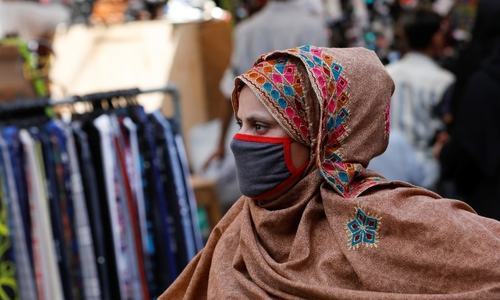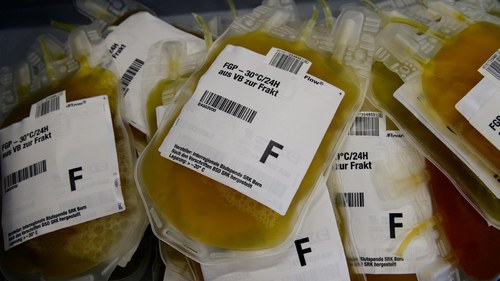KARACHI: As the Covid-19 situation gets critical in the country with a steep rise in the number of affected patients, the provincial health department announced on Tuesday a series of steps to tackle the emerging challenge.
These steps included establishment of five hospitals and high dependency units with 800 beds.
“In an effort to provide treatment to Covid-19 patients, the government plans to set up five more hospitals with the help of the Frontier Works Organisation. High dependency units with 800 beds would be available by end of July while some 210 ventilators would be added into the system,” said Health Minister Dr Azra Fazal Pechuho, adding that a 140-bed high dependency unit would also be set up at the Expo Centre field hospital.
High dependency units among other facilities, she explained, had the provision of oxygen delivery systems.
She also talked about the challenges the government had faced in its fight against Covid-19 and said initially the procurement of ventilators had been difficult because of an embargo imposed internationally on their export.
All major hospitals are running out of capacity and no longer admit patients suffering from any disease
“While we are continuously trying to facilitate patients, the first line of defence against the disease is precaution. I strongly urge the people to follow the precautionary measures.”
Experts had warned the government in April not to relax the lockdown considering the fragility of the healthcare system. The relaxation of restrictions on May 1, followed by the lifting of the lockdown on May 22 has caused the rate of infections to increase multiple times across the country.
“The positivity rate is high, the surveillance system is weak, there is a limited capacity to provide for critical patients and the population is not ready to adapt to change in behaviour,” says a June 7 letter penned by WHO country head for Pakistan Dr Palitha Mahipala.
The letter states that the coronavirus has spread to almost all districts in the country, with major cities making up a majority of national cases.
Critical situation
In the case of Karachi, sources said, all major hospitals in the city were running out of capacity and no longer admitting critical patients suffering from any disease.
The city has been reporting over 1,000 new Covid-19 cases daily with a significant rise in mortalities since May 30.
On Tuesday, 1,408 cases were reported in Karachi alone with 12 deaths, increasing the total number of coronavirus cases to 41,303 and deaths to 696 in the province.
Answering a question whether government initiatives were adequate to meet the growing patient needs, Dr Atif Hafeez, representing the Pakistan Islamic Medical Association, said: “It’s not just insufficient but also ineffective as the government has no plan to meet the shortages in the number of health professionals urgently required to run the system.”
According to him, hospitals are fast losing staff strengths as more and more professionals are contracting the virus while many lady doctors have abandoned their training for fear of the coronavirus.
“This problem could have been addressed by making use of medical professionals working in private healthcare facilities with insignificant patient burden and upgrading public sector hospitals functioning in areas such as Malir, Orangi Town and North Karachi.”
Instead, he regretted, the government gave away huge amounts of funds to selected private hospitals with no accountability.
Last but not the least, according to Dr Hafeez, the first major mistake the government made was not to take relevant experts from professional bodies and its own healthcare institutions on board.
Not a single doctor of the chest society, currently the most relevant experts, he pointed out, was included in the top decision-making committees (both at the federal and provincial levels). Also, the government ignored experts heading its own hospitals and medical universities.
“It’s an absolute failure from top to bottom that led to the ongoing crisis,” he said.
Published in Dawn, June 10th, 2020














































